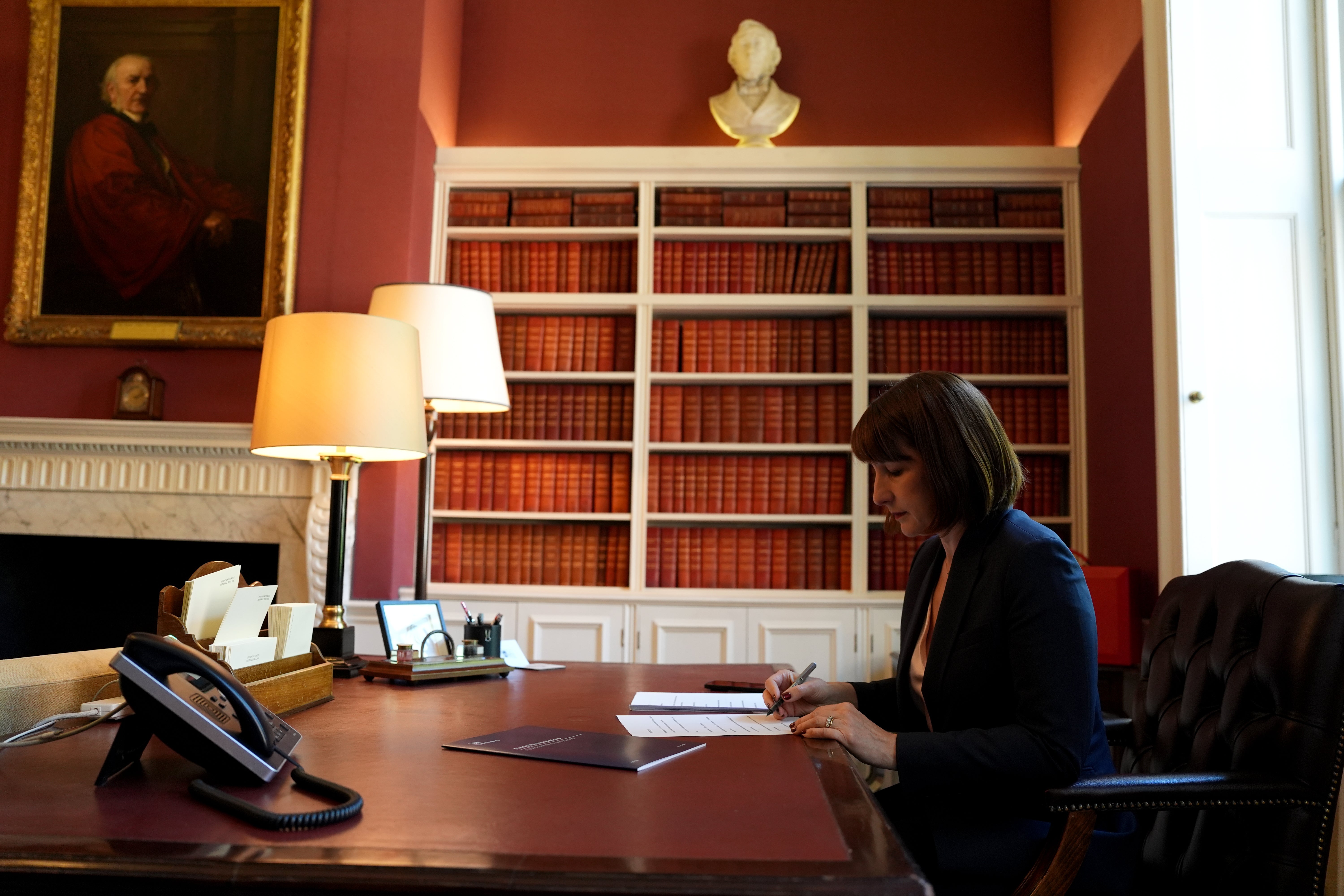Can ‘Houdini’ Reeves escape her terrifying tax-raising predicament?
With Rachel Reeves’s admission of ‘difficult decisions to come’ in her autumn statement, the walls have started to close in on the hitherto superhero chancellor, writes John Rentoul


It seemed that Rachel Reeves had finally admitted what everyone knows. “I think we will have to increase taxes in the Budget,” she told the News Agents podcast on Tuesday.
She could have been referring to the tax rises in the Labour manifesto on school fees, oil and gas companies, non-doms and private equity funds. Except that she had already announced those in her speech – don’t call it a mini-Budget! – on Monday, and the Treasury had already published the documents setting out those tax changes.
No, she seemed to be referring to the new, £22bn “black hole” in the public finances that she had so angrily claimed to have uncovered, and to the problem of how to fill it.
But she refused to say more, except to repeat the manifesto promises not to raise national insurance, income tax or VAT. Which leaves her in an awkward position, facing three months of speculation and lobbying before the Budget on 30 October.
She is like a superhero trapped in a chamber, the spiked walls of which are closing in – the twist being that it was she who pressed the button to start the machinery closing the walls.
She ruled out tax increases “on working people”. She may not have known everything about the spending pressures on the public finances but she knew they were not sustainable. Even before she discovered more bad news about the cost of the asylum system, it was obvious to everyone that something would have to give.
We know how the story is supposed to end: with one bound, she will be free at the last moment. Hence the assumption that Monday’s speech about the “spending inheritance” was preparing the escape route. To get out of her predicament, she has to persuade enough of the voters that her inheritance is worse than expected and that she is, reluctantly, doing the minimum possible to put things right.
But it is going to be a difficult trick to pull off. She cannot allow any sense to take hold that she was planning to put up other taxes all along. When she does eventually unveil the tax rises, she has to avoid any implication that they are punitive or confiscatory. She will say, as she did about the cut in winter fuel payments for better-off pensioners, that she didn’t want to do it but she had no choice because the nasty and deceitful Tories forced her to.
There are warning signs. Her changes to the tax treatment of non-doms seem drastic and risk sending the wrong message. No normal person understands the details but if respected businesspeople and wealth creators start to flee these shores, there will be a political price to pay for a government that bangs on about growth.
Reeves should have taken my advice from a while ago: instead of talking about “abolishing non-dom status”, she should have set out a new “Robin Hood tax” deal, inviting global entrepreneurs to come to Britain in return for a guaranteed tax yield for the Exchequer.
The big question for October is whether public opinion will accept a panoply of not-so-stealthy taxes on the grounds that the Tories left the accounts in a terrible state. That means three whole months of further argument about how foreseeable the overspend was.
I think Reeves has won enough of that case to just about sustain support for the difficult but necessary decisions she has to take. But she was foolish to try to pretend, however briefly, that the pay settlement for public sector workers was forced on her because there was never any chance that she would have tried to pay less. The economic case for matching private-sector pay is a slam dunk because the loss of public-sector staff had to be stemmed – and the strikes had to be bought off. And public opinion supports those pay rises.
The tricky bit, when the spiked walls meet in the middle, is when they have to be paid for.
“We stick by everything in our manifesto,” Reeves told the News Agents podcast. That manifesto says: “Labour will not increase taxes on working people.” We already know that the party’s definition of “working people” is unclear, and seems to mean something narrower than “people who work for a living”, which includes most parents of children at private schools, most non-doms and most private equity partners.
If, when she gets to the Budget, most taxpayers feel either that they have escaped tax rises or that they have been asked, reluctantly, to pay a small but necessary amount, Reeves will have emerged, Houdini-like, from her terrifying predicament.






Join our commenting forum
Join thought-provoking conversations, follow other Independent readers and see their replies
Comments